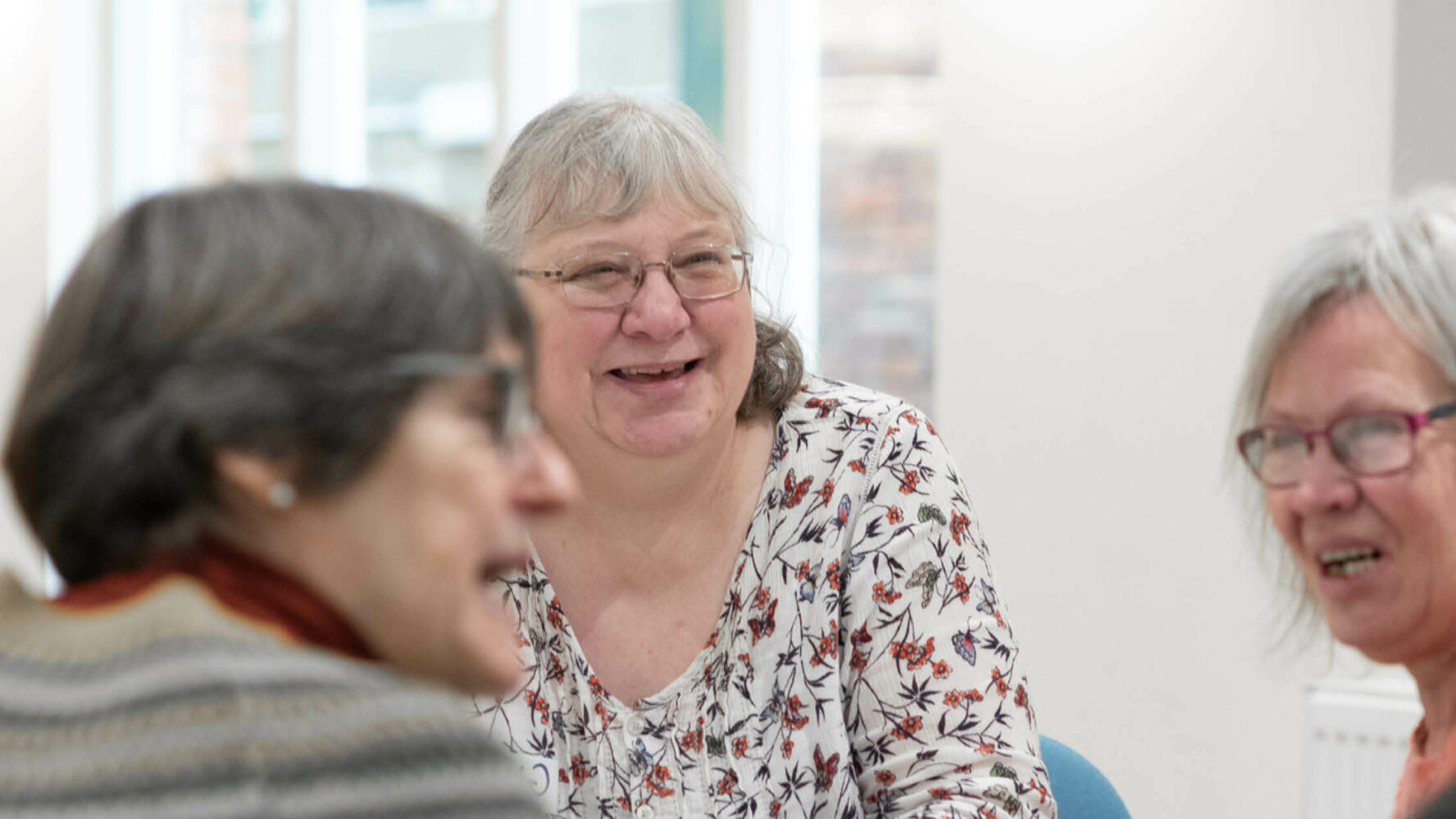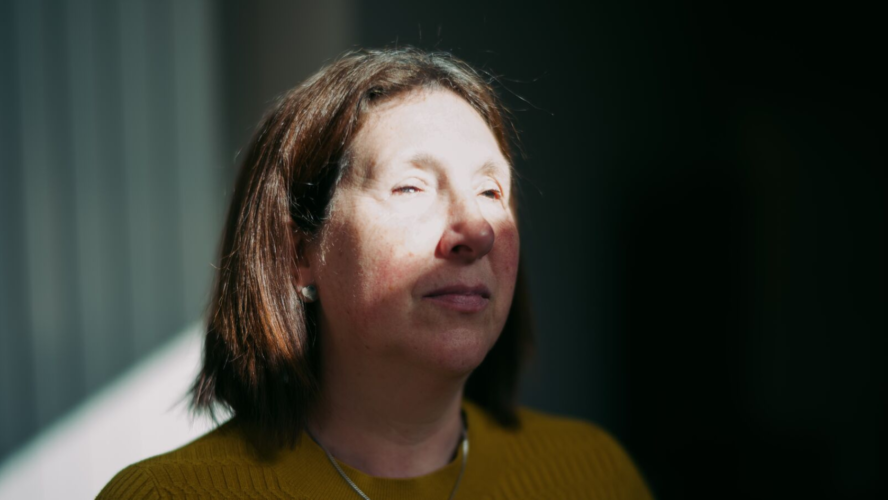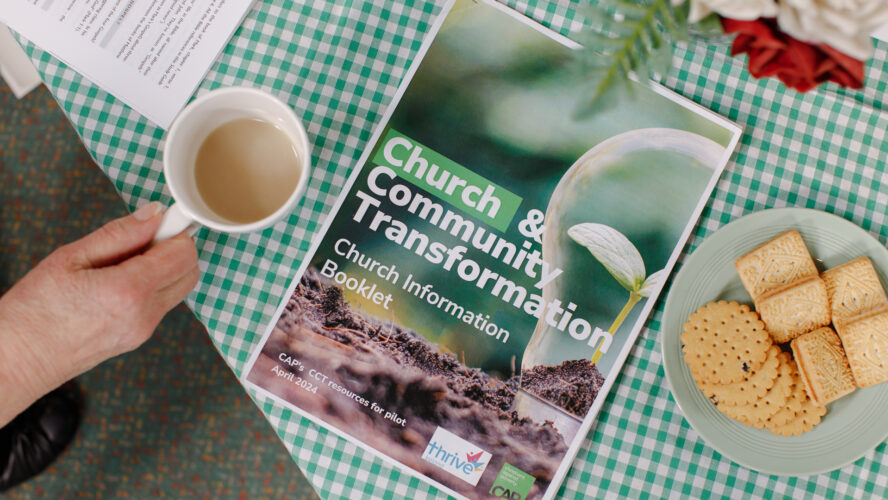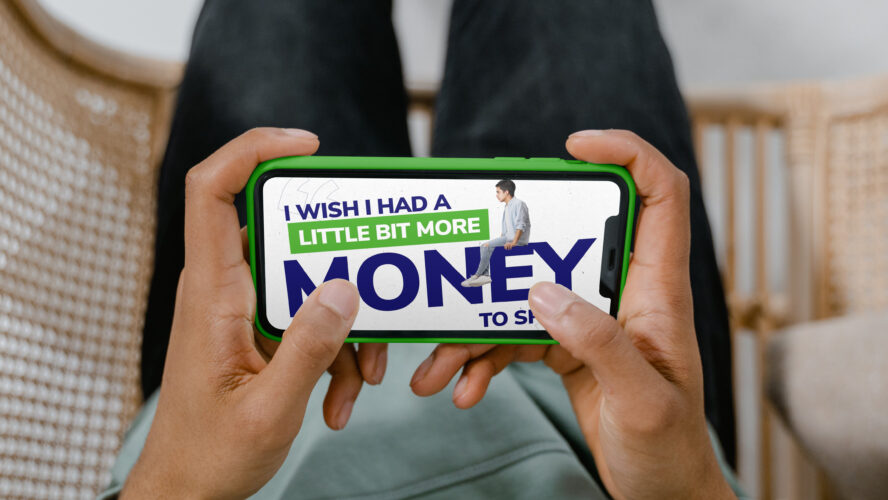
(average read time: 5 minutes)
As the energy crisis and cost of living has been hitting the headlines a lot this year, you may find yourself thinking more than usual about how to save money. Perhaps you’ve wondered what the future holds for us all.
Living well on a low income is at the heart of CAP’s Life Skills service, and we’d like to share the secrets of its success with you! After all, without supporters like you, Life Skills wouldn’t exist right now, let alone be our fastest growing service.
So what exactly is Life Skills? Let’s set the scene. Picture yourself in a warmly-lit church hall. As soon as you step inside, you’re met with the smell of fresh coffee and cake wafting across the room. A smiley volunteer welcomes you and introduces you to the rest of the group. There are people of all ages and backgrounds chatting together.
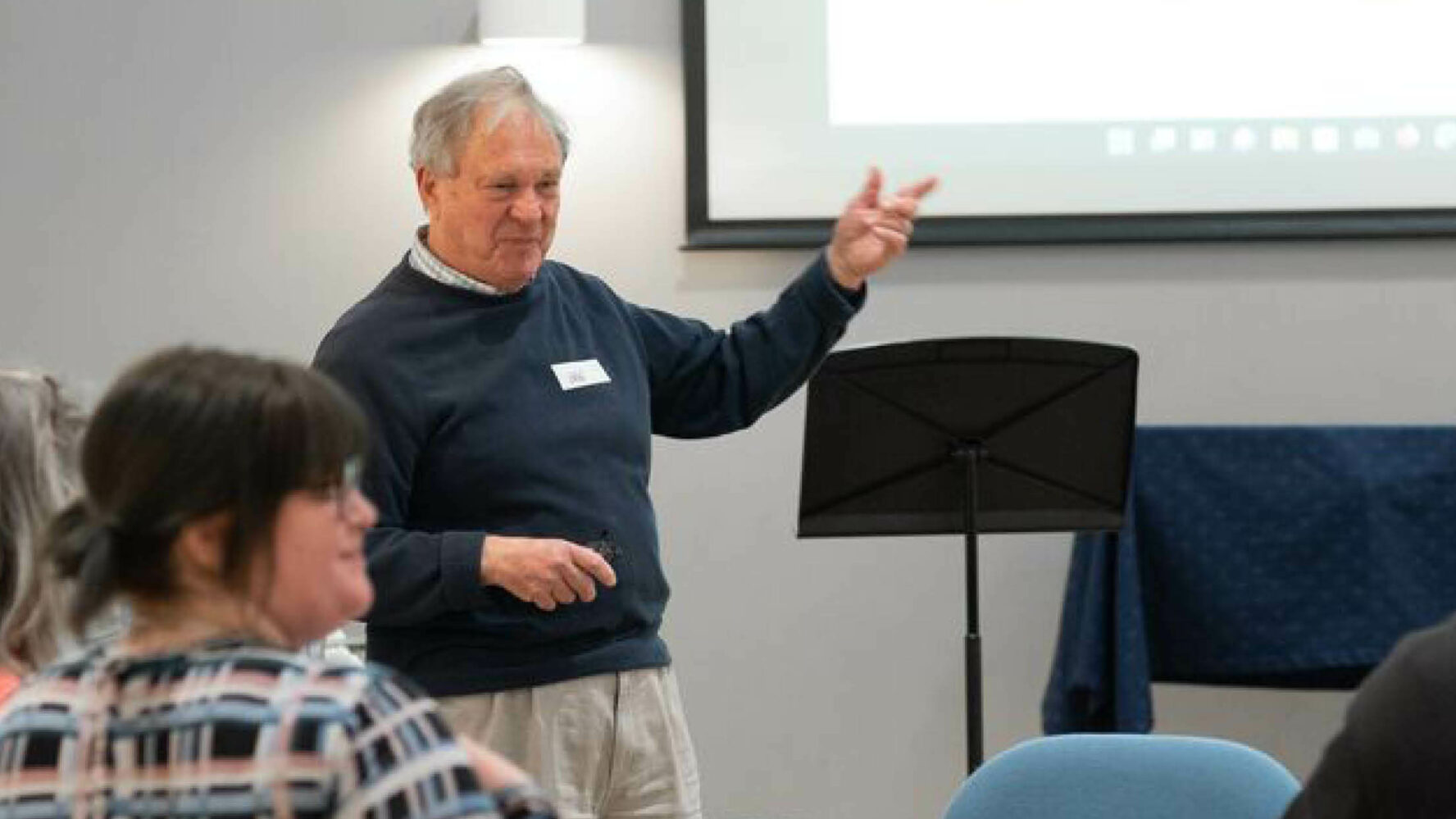
- One of CAP’s poverty-busting services
- A course spread over eight weeks
- Hosted by a local church, so community is a key element
- Coaching opportunities so members get personalised support to hit their goals
Time to introduce Paul. As well as being a talented songwriter and new member of St George’s Church, Stamford, Paul helps out at the Life Skills group each week. He attended the course himself last year, and now his enthusiasm to help others shines through.
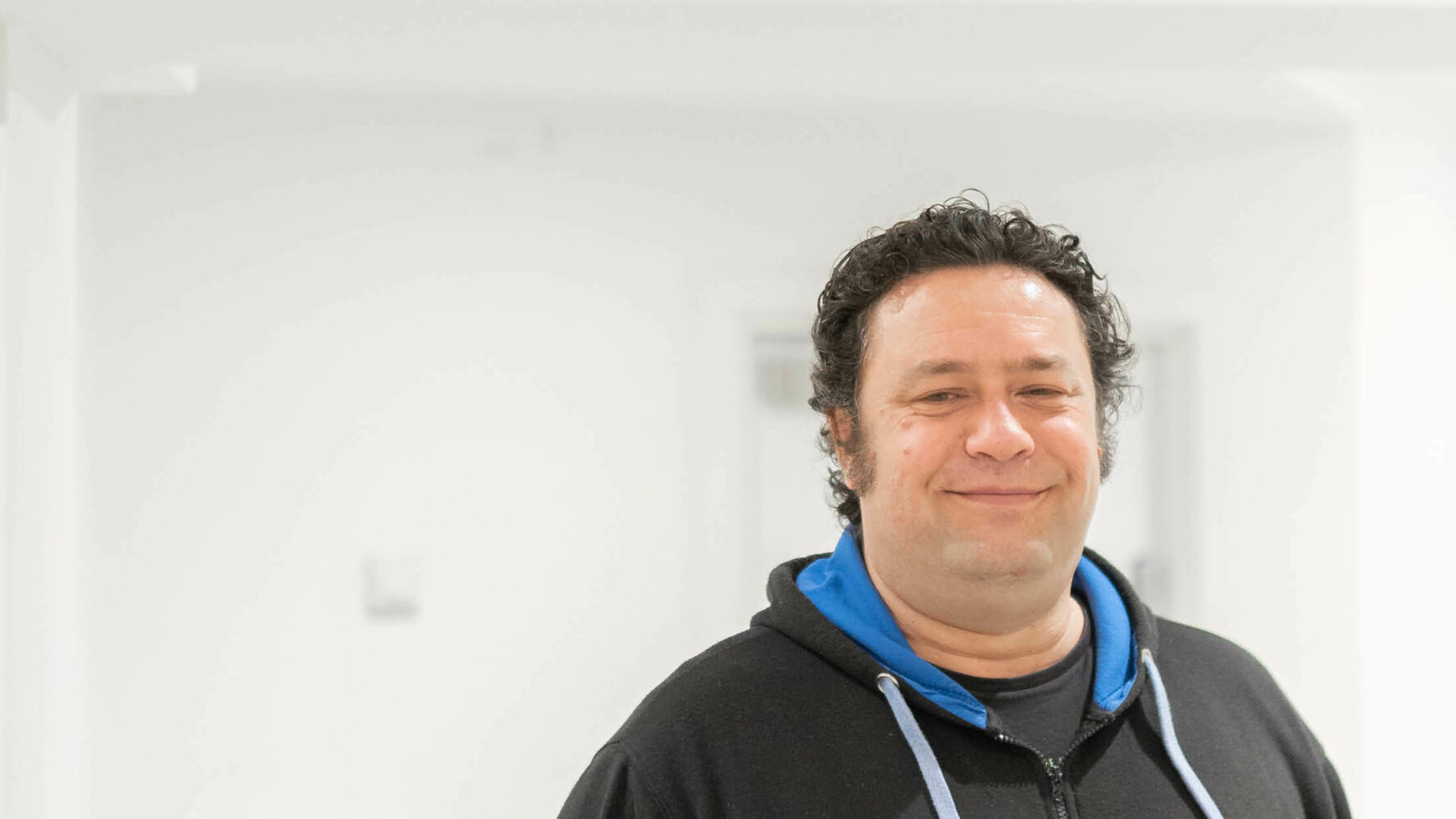
As someone who has both attended Life Skills and gone on to volunteer at the group, Paul is expertly placed to share the impact it can have.
There’s so much to learn; there’s a good community and it’s very friendly. There’s tea and coffee and sometimes cake and biscuits! There are lessons for helping you with finances, shopping, prioritising needs and necessities.
Paul
Life Skills is all about practical ways to make your life and finances less stressful. It covers much more than how to set up a household budget: from saving on your energy bills, to cooking healthy meals, looking after your mental wellbeing and improving your relationships.
In the session you’re attending today, you’re focusing on making your money go further. The group launches with a blindfold taste test of three different brands of chocolate, to see if the more expensive one actually tastes the best. It turns out most people like the cheaper brand! Next you move on to chatting about all the strategies shops use to encourage us to spend more money. If we know the tricks, we’re able to make informed decisions about what we buy. For example, cheaper items are often placed on the bottom shelf of a supermarket aisle, out of eyeshot, so that you’re more likely to pick a pricier version.
And that nice relaxed music playing over the speakers? That’s meant to make you amble around the shop at a leisurely pace, so that you’ll spend more money instead of just grabbing the items you need and leaving.
It’s not all about money, though. A key area of Life Skills is learning to set personal goals. By reflecting on how the last week has gone and setting goals for the coming week that are achievable, individual and measurable, we can make meaningful progress towards the kind of change we want to see in our lives.
Through goal-setting and one-to-one coaching from CAP Life Skills Coaches, members are able to see changes in their lives that go beyond practical budgeting skills, as is clear by the difference in Paul’s life now. You’ll have a chance to try out one of these goal-setting activities for yourself later on, but first of all, let’s hear from Paul himself as he shares his story.
The thing I remember most is learning to ask myself: do you want it or do you need it? Can you get it cheaper elsewhere? It was about prioritising your needs, which was a nudge to think about what I was spending money on.
Paul
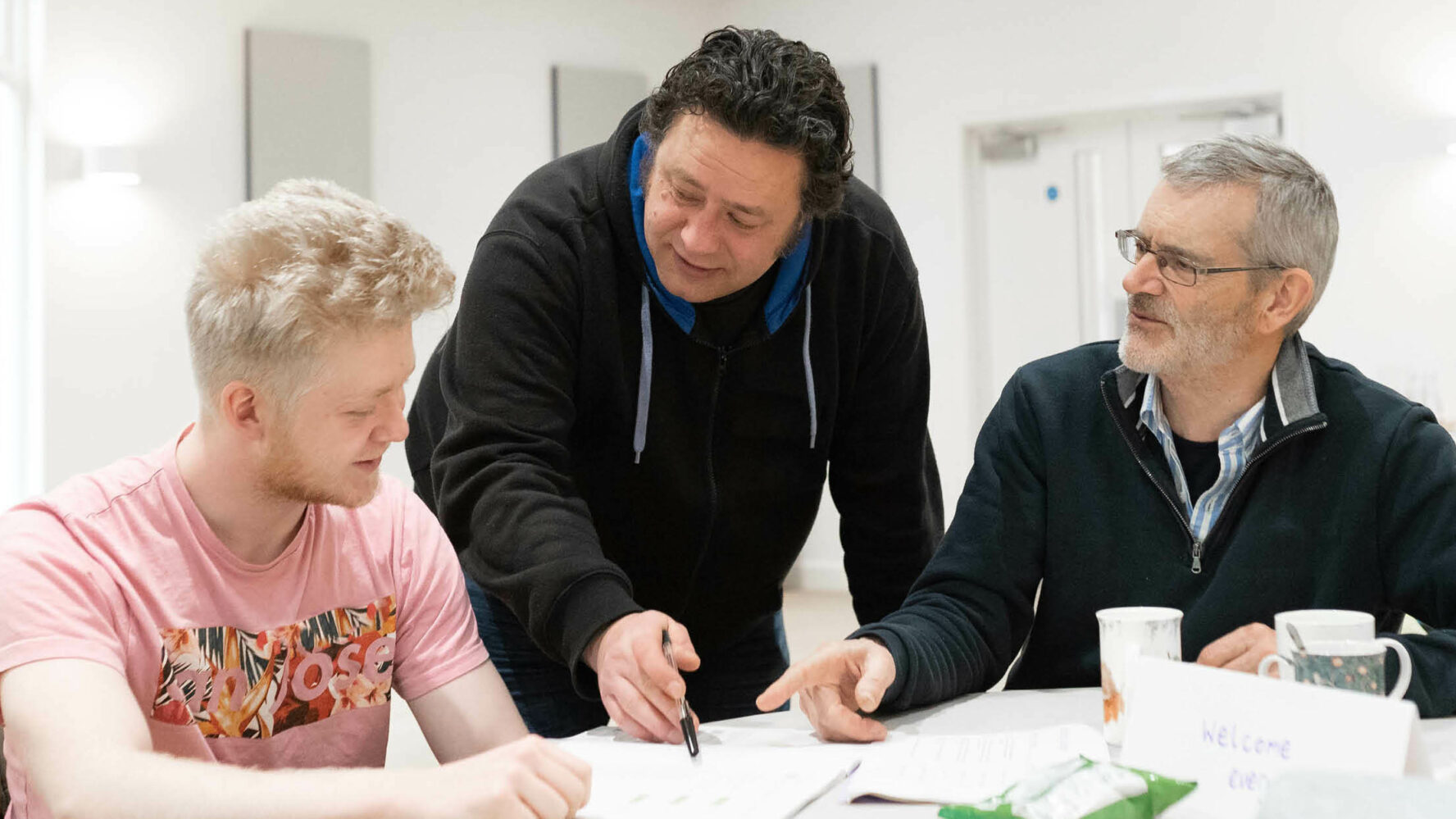
‘Last year, I was in hospital after a breakdown. It was a combination of many things – coming out of a long-term relationship, a severe sleep condition, and several bereavements in my family and friends. I was in a very dark place.
‘I had cut all of my old ties and prayed for a new family, a new beginning and a new community. That’s what I found through St George’s Church. And that’s where I heard about CAP Life Skills.
‘It came along at just the right time. I really enjoyed it. I started as an attendee and after that started to volunteer at the group and support others. It has been a real blessing to be involved with.
‘Life Skills can be used as a building block for our day to day lives. It builds confidence through practical learning.
‘If I hadn’t found God, community, friends and Life Skills when I moved house, I really don’t know where I would be. It has been everything to me. It has saved my life.
‘My baptism and reaffirmation was in October 2021. I’ve been able to get back to being self sufficient and creative – I have completed my album, collaborating with established producers, professional vocalists and scratch DJs from five countries. I have also written a hymn for St George’s Church.
‘Looking back, I don’t even recognise the person that I was. I strongly believe that if someone as lost as myself is able to bounce back, then anyone can!’
Now you’ve experienced a taste of a Life Skills group and seen the difference it’s made in Paul’s life, next up, it’s over to you to try out the activities for yourself. Here’s a real page from the Life Skills workbook, which you can use to help reflect on and set your own goals. They don’t have to be budget-related: the beauty of this goal-setting activity is that you can apply it to so many other areas of your life. What changes do you want to see, and what can you do this week to take a step in the right direction?
If Life Skills has caught your interest, why not get stuck in with some more of what it has to offer? You’ll find a spending diary from the course workbook at the end of this article, if you’d like to have a go at tracking your spending over a week to see if there are any surprises in your expenditure!
And if you’d like to find out more about getting involved in a face-to-face group with all these activities and more, then you can check if there’s a Life Skills group meeting near you.
